Don't wanna be here? Send us removal request.
Text

As a hotelier, your properties might have been listed on various channels. A channel manager can help you in syncing your inventories across those listed channels.
Although there are plenty of Channel Managers available in the market, selecting the right one for you is critical for your business.
In this guide, we will help you to find the Best Channel Manager for Business property.
Visit Here: https://qloapps.com/how-to-choose-the-right-channel-manager-for-your-hotel/
0 notes
Text
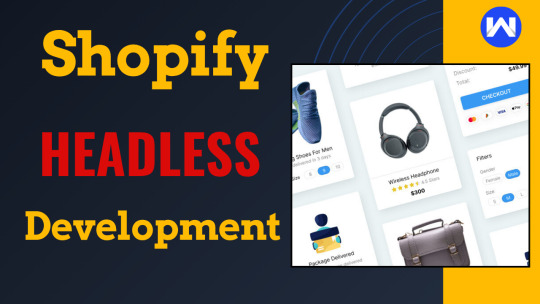
Shopify Headless Development lets you build a custom online store by separating the front-end and back-end. It gives you more control over how your store looks and works.
#Shopify headless development#Shopify headless#Shopify hydrogen development#Shopify headless services
0 notes
Text
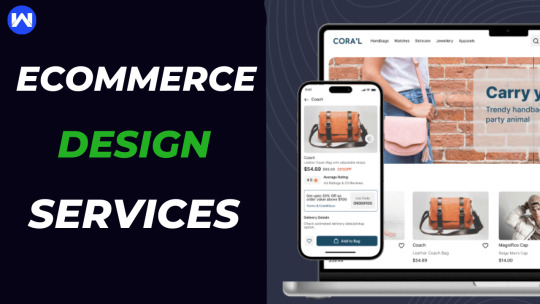
eCommerce design services create simple and attractive online stores. They focus on designing easy-to-use websites, improving the shopping experience, and making sure the site works well on all devices, helping businesses boost sales and keep customers happy.
0 notes
Text
CRM vs ERP: Which One Is Right for Your Business?
If you run a business, you've probably heard of CRM (Customer Relationship Management) and ERP (Enterprise Resource Planning). These help businesses stay organized and grow, but they serve different purposes. Let’s break it down in simple terms so you can decide which one fits your business best.
What is CRM?
A CRM system helps businesses manage customer relationships. It keeps track of customer interactions, sales, and marketing efforts, making it easier to improve customer service and boost sales. Many companies invest in ERP CRM System Development to create a custom
solution that fits their needs.
What CRM Does
Stores customer details – Names, emails, phone numbers, and purchase history.
Tracks sales and leads – Helps sales teams follow up and close deals.
Automates marketing – Sends emails and runs targeted ads.
Manages customer service – Handles support requests and feedback.
Provides reports – Shows trends in sales and customer behavior.
Why You Might Need CRM
You want to improve customer relationships.
Your sales team needs better tracking and follow-ups.
You want to personalize marketing and boost sales.
Your customer service needs a more organized system.
What is ERP?
An ERP system helps manage the core operations of a business, like finances, inventory, and human resources. It connects different departments, making sure everything runs smoothly. Many businesses integrate an ERP CRM System to get the best of both worlds customer management and operational efficiency.
What ERP Does
Handles finances – Tracks expenses, budgets, and payments.
Manages inventory – Keeps stock levels organized and updated.
Supports HR tasks – Payroll, employee records, and hiring.
Improves production planning – Helps manufacturers stay on schedule.
Tracks business performance – Gives insights into costs and profits.
Why You Might Need ERP
Your business deals with a lot of inventory and orders.
You want to streamline accounting and HR.
Your company needs better coordination between departments.
You want to automate manual processes and save time.
Which One is Right for Your Business?
Go for CRM if:
You want to increase sales and improve customer service.
Your business relies on customer interactions and relationships.
You need better tools for marketing and lead tracking.
Go for ERP if:
You need to manage inventory, finances, and HR in one system.
Your business has complex operations and multiple departments.
You want to automate business processes and improve efficiency.
Can You Use Both?
Yes! Many businesses use both CRM and ERP together. CRM helps with customer relationships, while ERP takes care of business operations. When combined into an ERP CRM System, they provide a complete solution that streamlines business management and improves productivity.
Final Thoughts
Both CRM and ERP are great tools for businesses. CRM helps with customers and sales, while ERP focuses on internal operations. If your company wants a seamless workflow, investing in ERP CRM System Development can be a game-changer. If you want better customer relationships, go for CRM. If you need smoother business processes, choose ERP. Some businesses use both to get the best of both worlds.
0 notes
Text
How CRM Software Improve B2B Manufacturing Relationships?
In B2B manufacturing, strong customer relationships are key to success. Manufacturing CRM software helps businesses improve processes, track customer interactions, and increase efficiency.
What Does a CRM Do for Manufacturers?
Manufacturers work with suppliers, distributors, and customers in complex supply chains. A CRM system helps manage these connections by improving communication, data access, and decision-making.
Key Benefits of CRM Software in Manufacturing
1. Stronger Customer Relationships
A CRM system stores customer details, helping businesses provide better service and personalized experiences.
Automated follow-ups keep customers engaged.
AI insights help predict customer needs.
Faster responses lead to happy customers.
2. Better Sales and Lead Management
Manufacturing sales take time, so tracking leads is important. A CRM system helps sales teams focus on valuable opportunities.
Real-time data shows customer interests.
Lead scoring helps prioritize top prospects.
Marketing automation increases conversions.
3. Easy Order and Inventory Management
A CRM system connects with ERP software to manage orders and inventory.
Real-time tracking lets customers see their order status.
Demand forecasting prevents stock shortages.
Automated workflows reduce errors in orders.
4. Improved Supplier and Vendor Management
Manufacturers depend on suppliers. A CRM system makes vendor management easier by:
Storing supplier details and past orders.
Automating order placements.
Tracking supplier performance for improvements.
5. Smarter Business Decisions
A CRM system provides reports and insights to improve decision-making.
Dashboards display key business data.
AI insights reveal market trends.
Data helps with planning and budgeting.
6. Better Team Collaboration
A CRM system connects sales, marketing, production, and customer service teams.
Shared customer data improves teamwork.
Automated tasks increase efficiency.
Communication tools keep teams aligned.
7. Improved Customer Support
Great service helps businesses grow. A CRM system improves support by:
Using AI chatbots for quick responses.
Tracking customer issues with a ticketing system.
Resolving problems faster.
8. Better Data Security and Compliance
Manufacturers must follow industry regulations. A CRM system helps by:
Keeping accurate records.
Automating compliance reports.
Protecting customer data with security measures.
How to Choose the Right Manufacturing CRM
Not all CRM software is the same. Consider these factors:
Scalability: Can it grow with your business?
Integration: Does it work with existing systems?
Ease of Use: Is it simple to learn?
Customization: Can it meet your needs?
Mobile Access: Can teams use it on the go?
Final Thoughts
A manufacturing CRM is valuable for improving business operations, customer relationships, and efficiency. By using it effectively, manufacturers can gain a competitive edge and long-term success.
0 notes
Text
Car Rental App Development Key Features in 2025
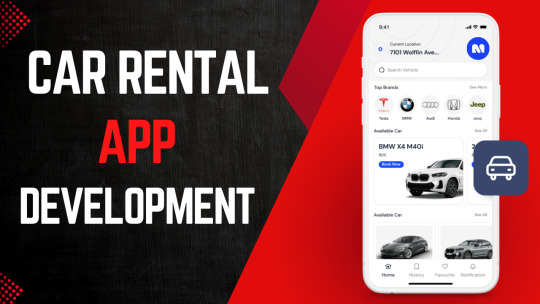
Car rental apps are changing the way people rent cars. Whether for travel, business, or daily use, these apps make it easy to book a vehicle in just a few taps. If you are thinking about building a car rental app, this guide will help you understand the key features needed for success.
Why Car Rental Apps Are Popular
Car rental apps save time and effort. Instead of visiting a rental office, users can book cars online, compare prices, and get their vehicle delivered or picked up. The demand for car rental services is growing fast, making it a great business opportunity.
Types of Car Rental Apps
Self-Drive Rentals – Users rent cars and drive themselves.
Chauffeur Services – Users book a car with a driver.
Peer-to-Peer (P2P) Rentals – Car owners rent out their vehicles.
Corporate Car Rentals – Businesses provide rental cars to employees.
Luxury Car Rentals – High-end cars for special occasions.
Must Have Features of a Car Rental App
For Users:
Easy Sign-Up & Login – Use email, phone number, or social media.
Car Search & Filters – Find cars based on price, type, fuel, and more.
Booking & Scheduling – Choose dates and reserve a car instantly.
Real-Time GPS Tracking – Track the rented car’s location.
Multiple Payment Options – Pay via credit card, wallet, or UPI.
User Reviews & Ratings – Check feedback before renting.
Customer Support – Get help through chat or call.
For Admins:
Dashboard & Reports – Track bookings and earnings.
Car Management – Add or remove vehicles.
User & Driver Management – Manage accounts and documents.
Pricing & Discounts – Set rental prices and offers.
Notifications & Alerts – Send updates to users and drivers.
For Drivers :
Profile & Verification – Register and submit documents.
Booking Requests – Accept or decline rides.
Navigation & Route Guide – Get optimized routes.
Earnings Dashboard – Track income and ride history.
Technology Used in Car Rental Apps
Frontend: React Native, Flutter, Swift, Kotlin
Backend: Node.js, Python, Java
Database: Firebase, PostgreSQL, MongoDB
Hosting: AWS, Google Cloud, Microsoft Azure
Payment Integration: Stripe, PayPal, Razorpay
Navigation: Google Maps API, Mapbox
How Car Rental Apps Make Money
Rental Fees – Users pay based on the rental period.
Subscription Plans – Offer memberships with discounts.
Surge Pricing – Increase prices during peak demand.
Ads & Promotions – Earn from third-party advertisements.
Corporate Partnerships – Tie up with businesses for bulk rentals.
Late Return Fees – Charge extra for late car returns.
Challenges in Car Rental App Development
Challenges in car rental app development include managing bookings, securing user data, setting up payments, creating simple interfaces, handling car fleets, ensuring accurate GPS, adjusting to demand, and following legal rules.
Legal Compliance – Following rules and getting licenses.
Car Maintenance – Managing and servicing rental vehicles.
User Trust & Security – Ensuring safe rentals with verified users.
Standing Out in the Market – Competing with established apps.
Conclusion
A car rental app is a good investment today. With the right features, strong support, and an easy design, you can create an app that attracts customers. Understanding costs and market trends will help you make the best decisions.
0 notes
Text
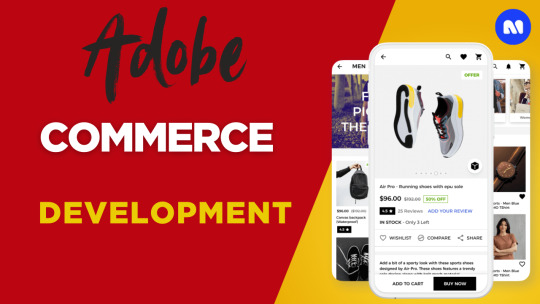
Adobe Commerce Development is the process of building and customizing online stores using Adobe Commerce. It helps businesses create secure, scalable, and user-friendly e-commerce websites that offer a smooth shopping experience and easy integrations with other systems.
0 notes
Text

Hotel Management Software helps manage hotel tasks like bookings, check-ins, check-outs, billing, and housekeeping. It makes operations easier, improves guest experience, and saves time for hotel staff and managers.
0 notes
Text
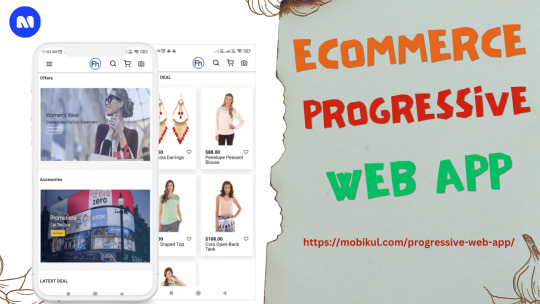
An eCommerce Progressive Web App is a website that acts like an app on your phone. It’s fast, works offline, and sends notifications. It makes shopping easier by offering a smooth experience, whether you're connected to the internet or not.
0 notes
Text
Exploring Benefits and Challenges of Headless Design for Your Business
In today's fast-paced business environment, companies require websites that are fast, flexible, and scalable.
One effective way to achieve this is with a headless design.
But what exactly is headless design, and is it the right option for your business? Let’s explore it in simple terms.
What is Headless Design?
The headless design separates the front end from the back end. Instead of being tied to one system, it uses an API to deliver content anywhere websites, apps, smart devices, and more.
How Does It Work?
Backend Manages Content – Your content is stored in a system like a headless CMS.
API Sends Data – The API delivers content wherever it’s needed.
Frontend Displays Content – A website, mobile app, or other platform presents the content.
Benefits of Headless Design
1. More Flexibility
You can build the front end using any technology.
2. Faster Website Speed
Since content loads through an API, websites run faster.
3. Works on Multiple Platforms
Easily share content across websites, apps, and more.
4. Better Security
Since the backend is separate, it’s harder for hackers to attack.
5. Easy Integrations
You can connect to other tools like eCommerce platforms, analytics, and more.
6. Scalable for Growth
It’s easier to update and expand without starting from scratch.
Challenges of Headless Design
1. Higher Initial Cost
Setting up a headless system can be expensive.
2. More Technical Knowledge Needed
You’ll need a developer to build and manage it.
3. No Pre-Built Themes
Unlike WordPress, headless CMSs don’t come with ready made designs.
4. Ongoing Maintenance
APIs and frontends need regular updates to stay functional.
Is Headless Design Right for Your Business?
Good for You If:
You want content on multiple platforms.
You need high customization and speed.
You have a development team.
Better to Stick with Traditional CMS If
You want an all-in-one, easy-to-use system.
You lack technical skills.
You have a small budget.
Popular Headless CMS Platforms
Contentful – Cloud-based and API-driven.
Strapi – Open source and self-hosted.
Sanity – Developer friendly with real-time updates.
Prismic – Easy-to-use API-first CMS.
Ghost – Great for blogs and content creators.
Conclusion
Headless design is flexible, fast, and future-proof. But it requires more work and expertise. If you need a simple, user-friendly system, a traditional CMS may be better. Choose based on your needs, budget, and technical skills.
0 notes
Text
How To Optimize Hotel Channel Manager Software?
To optimize your hotel channel manager software, connect it to all major booking platforms for real time updates. Keep the software updated to use the latest features. Automate inventory management to avoid overbooking. Check which booking channels work best and focus on them. Set consistent and competitive pricing across all platforms. Train your team to use the software well to reduce mistakes and improve efficiency, helping you increase bookings and revenue.
0 notes
Text
Why Use Hydrogen for Shopify Headless Development
Hydrogen is a great choice for Shopify headless development because it helps you build fast, custom online stores. It works smoothly with Shopify’s backend, giving developers more freedom to create unique shopping experiences. Hydrogen gives you better performance and more control over design, making your store stand out and run smoothly. It’s ideal for anyone who wants a personalized, high performing store.
0 notes
Text
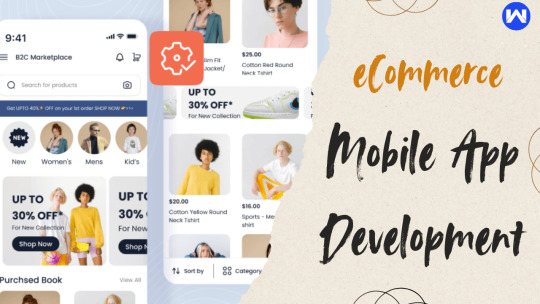
We create custom eCommerce mobile apps for your online store, no matter what you sell. Connect your app and website easily, and boost sales with a simple, user-friendly shopping experience.
0 notes
Text
Best OTA & Hotel Channel Manager Software
The best OTA and Hotel Channel Manager software helps hotels manage bookings from different online platforms. It updates availability and prices in real time, preventing overbookings. Popular options like SiteMinder, Qloapps, and RoomRaccoon make it easy for hotels to handle bookings from multiple websites, saving time and increasing revenue.
0 notes
Text

Hotel booking software makes reservation management easier and more effective. It helps them manage reservations from many sources, including their website, online travel agents, and front desk, keep track of rooms, and prevent overbooking.
0 notes
Text
Why Every Hotel Should Have a Channel Manager
Every hotel should have a channel manager because it simplifies online bookings by connecting your property to multiple booking platforms at once. This tool ensures real-time updates for availability and pricing, reducing the risk of double bookings and saving you time on manual tasks. With a channel manager, you can reach more guests, increase occupancy, and smooth operations, all while maximizing your revenue potential.
0 notes
Text
How To Choose a Channel Manager?
To choose the right channel manager, start by looking for one that's easy to use and integrates well with your property management system. Make sure it supports all the booking platforms you need and offers real-time updates to prevent overbookings. Good customer support is essential, so pick a provider with a solid reputation for service. Finally, consider the cost and make sure it aligns with your budget.
0 notes